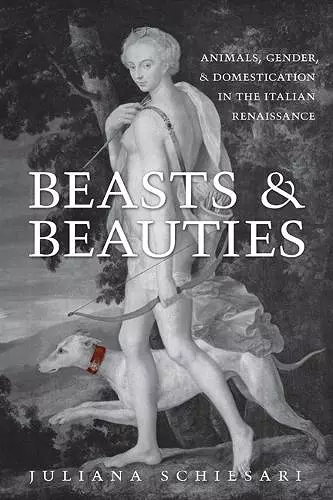Beasts and Beauties
Animals, Gender, and Domestication in the Italian Renaissance
Format:Hardback
Publisher:University of Toronto Press
Published:20th Jan '10
Currently unavailable, and unfortunately no date known when it will be back

'Beasts and Beauties argues that Italian humanists constructed a domestic space that both reinforced a hierarchy of being in which the European male occupied the supreme position and functioned as a site of resistance where the first post-humanist critiques were born. By positioning the works of well-known humanists such as Petrarch and Alberti within the discourse of domesticity, Juliana Schiesari productively examines literature, art, and social practices in order to analyse what verbal and visual representations of animals can reveal about the construction of gender, race, and class in early modern Italy.' -- Suzanne Magnanini, Department of French and Italian, University of Colorado, Boulder
Beasts and Beauties examines the relationship between domesticity and power by focusing on the contemporaneous development of the invention of the 'pet' and the delineation of the home as a uniquely private enclosure, where the pater familias ruled over his own secluded world of domesticated wife, children, servants, and animals.
The question of what it means to be human has preoccupied thinkers since antiquity. The classical humanism of the Italian Renaissance saw humanity as hierarchical, with elite European males at the apex while women, lower class or foreign men, and animals occupied varying lesser degrees of being. Using the theme of domestication to interrogate the intertwined notions of femininity, sexuality, and animality, Juliana Schiesari looks to early modern Italy to uncover the origins of the modern conception of the human.
Beasts and Beauties examines the relationship between domesticity and power by focusing on the contemporaneous development of two phenomena - the invention of the 'pet' and the delineation of the home as a uniquely private enclosure, where the pater familias ruled over his own secluded world of domesticated wife, children, servants, and animals. Drawing upon canonical works and authors of the Italian Renaissance, Schiesari discusses how the figure of the animal resituates these works and provides a fresh perspective to how we as human beings perceive ourselves in relation to the world.
ISBN: 9780802099228
Dimensions: 238mm x 161mm x 15mm
Weight: 400g
176 pages